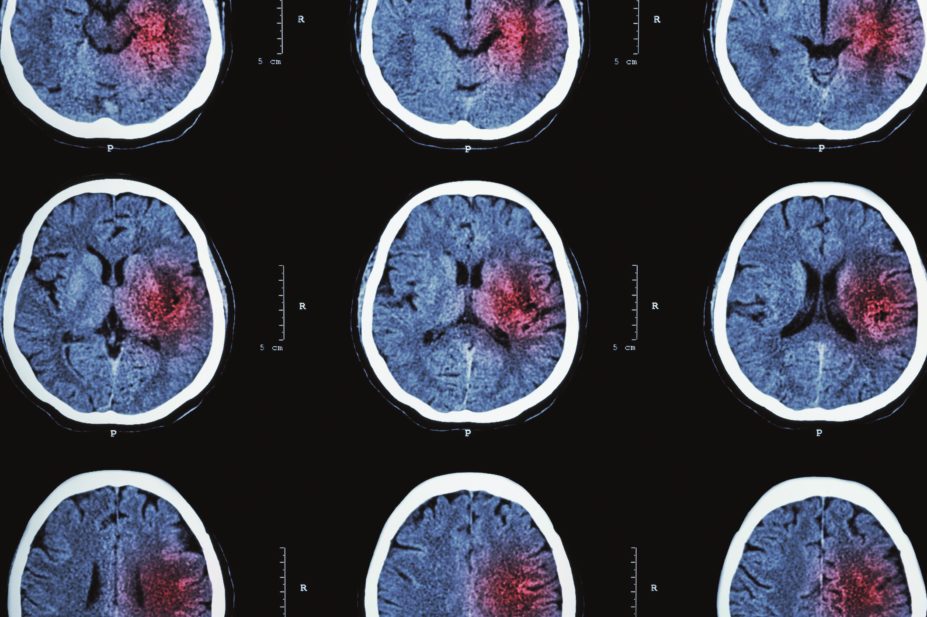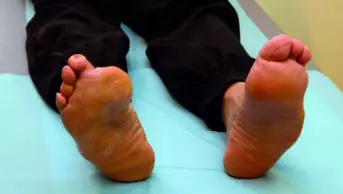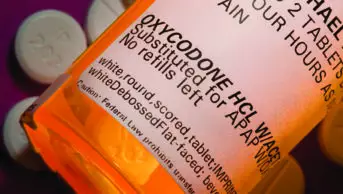
Shutterstock
Patients with a stroke diagnosis are more frequently prescribed psychotropic drugs than other patients, data from Denmark show.
The research also indicates that use of this drug class, which includes benzodiazepines, antidepressants and antipsychotics, is associated with increased mortality among both stroke and non-stroke patients.
“These drugs should be used with care in patients with stroke but also in the population in general as they are associated with negative health consequences,” says lead author Poul Jennum from the University of Copenhagen.
The team used data from the Danish National Patient Registry to identify all patients diagnosed with stroke between 1997 and 2009 who survived for at least a year. These 49,968 patients were matched with 86,100 controls of the same age, gender, marital status and county of residence and their prescription records were analysed.
The researchers found that patients with stroke were more likely to be prescribed psychotropic drugs than controls. In total, 84.4% of controls were defined as non-users compared with 67.6% of patients with stroke.
Overall mortality was higher among stroke patients than controls, but use of psychotropics was associated with a greater risk of death in both groups of patients. This was most pronounced in those receiving antipsychotics. For example, the risk of mortality was increased two-fold in patients with stroke who received first-generation antipsychotics, and by 3.4-fold in controls, compared with their untreated counterparts.
Risk of mortality for each drug class studied was higher among controls than patients. The researchers say they cannot explain this finding but suggest that, by excluding stroke patients who did not survive for at least one year, they may have selected a population that had higher survival rates in spite of psychotropic drug use.
The team suggest that psychotropic drugs may influence morbidity and mortality through their effects on the respiratory system and note that there have been reported incidences of overdose. However, they acknowledge that the findings may be related to the underlying psychiatric disorder being treated, such as depression, anxiety and psychosis, rather than the treatment itself.
Jennum and colleagues, who published their findings in BMJ Open
[1]
on 8 March 2016, say this is one of the largest studies of its type to include stroke patients. But the team say that even larger datasets are needed, with longer follow-up, to fully control for the effect of different psychiatric and medical diagnoses.
Stroke can result in a worsening of pre-existing psychiatric conditions, such as psychosis, or new psychological symptoms, including anxiety and low mood.
Pippa Tyrrell, professor of stroke medicine at the University of Manchester, who was not involved in the study, says these conditions are often difficult to manage on a stroke unit and drugs are sometimes prescribed to control symptoms.
“This is a real wake up call to staff caring for people with stroke to try to deal with psychological and psychiatric symptoms very carefully, avoiding routine use of psychotropic drugs,” she says. “Drugs are sometimes necessary, but it is always best to discuss with the mental health team first if possible.”
Tony Rudd, consultant stroke physician at Guy’s and St Thomas’ Hospital in London, who was also not involved in the research, says there is little evidence for the role of psychotropics post-stroke. “This is particularly true for antidepressants. So there will be instances when they should be tried but only continued if they are effective.”
Rudd says that it can be difficult for patients with physical illness to access non-pharmacological treatment, such as cognitive behavioural therapy. However, he adds: “It would be a shame though if patients were deprived of useful treatments and left anxious, depressed or psychotic on the basis of this study.”
References
[1] Jennum P, Baandrup L, Iversen HK et al. Mortality and use of psychotropic medication in patients with stroke: a population-wide, register-based study. BMJ Open 2016;6:e010662. doi: 10.1136/bmjopen-2015-010662


